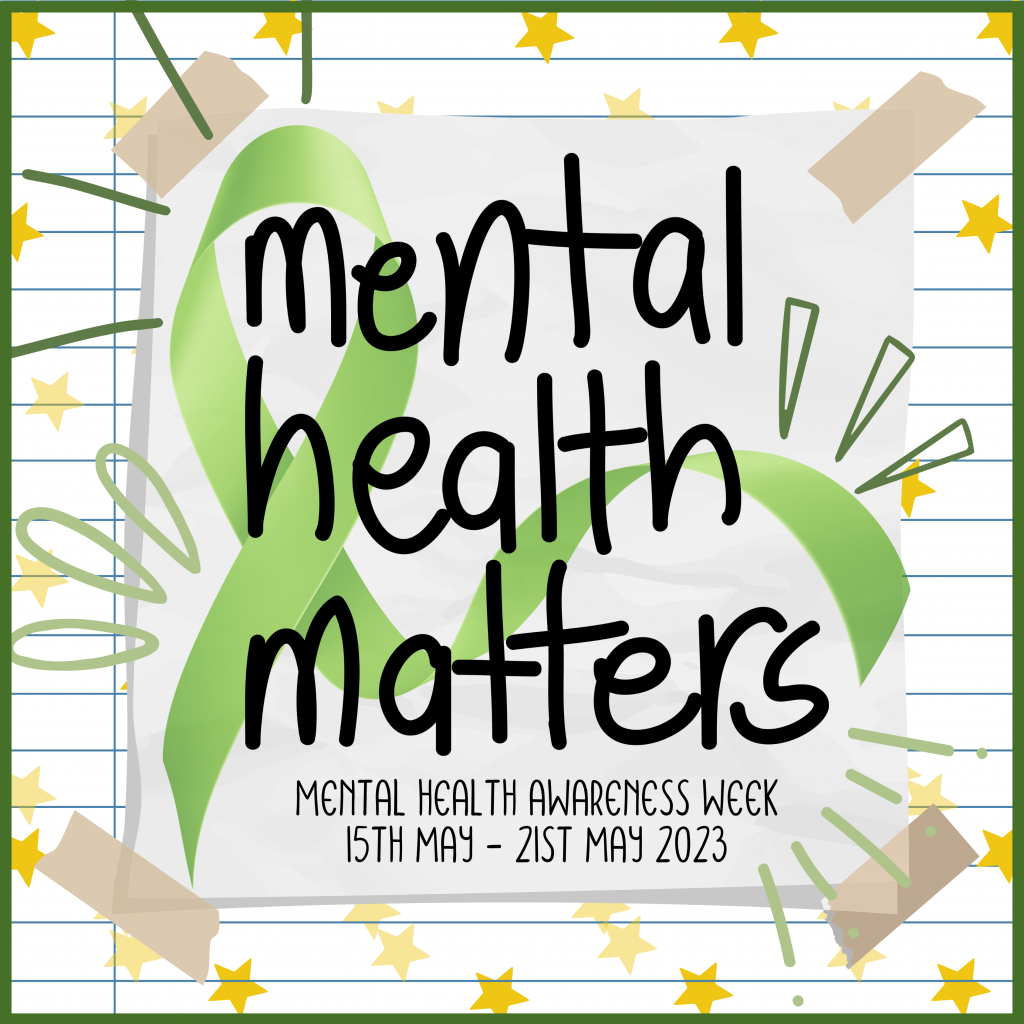
Thankfully, mental health has been much more of an important discussion in recent years, with conversations coming on leaps and bounds even in the past 10 years it’s been since I can remember first learning about mental health as a teenager in school. Back then, I was taught that sometimes people’s brains hurt, and they are sad but they don’t know why. I’m both happy and sad to say I’ve learnt it a little bit more up close and personal since I was 13, but it’s given me a huge appreciation for why creating safe spaces for conversations around mental health is so important, and can be live-saving.
This is a huge step in the right direction, but why is it so important to talk about mental health?
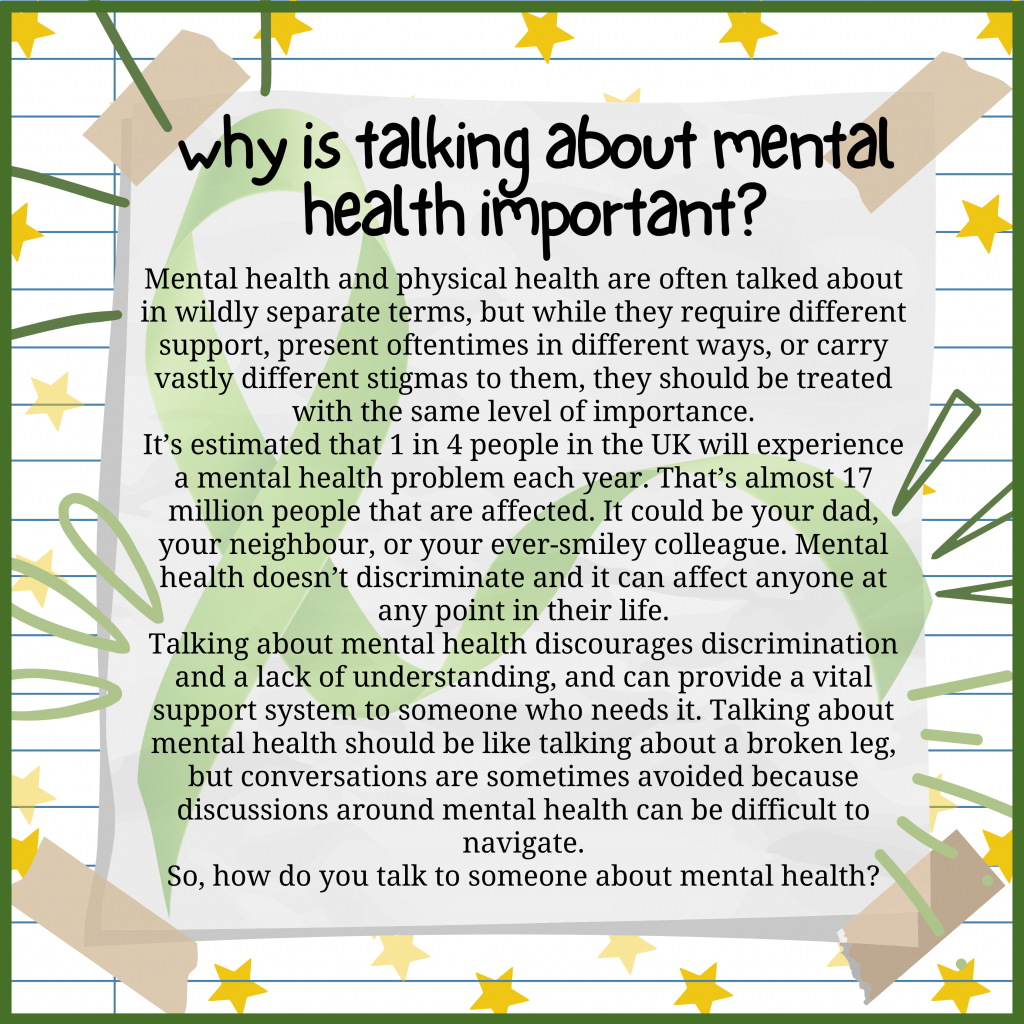
These kinds of conversations are never easy. If it’s a loved one, it’s always hard to know they’re going through a difficult time, and even harder when you’re not sure of the tools you can utilise to help them. If my friend broke their leg, I would drive them to the hospital, sit them down in A&E and we’d wait however long we had to, to get their leg set in a cast. Then I would spend the next few weeks helping them around the house, propping their leg up on a pillow, and bringing them the obligatory ‘sick person’ gift of grapes. But mental health is harder, and the tools needed for everyone are different, so asking them in what ways you can support them is often the best way to learn. But how do you bring up something as difficult to talk about as mental health?
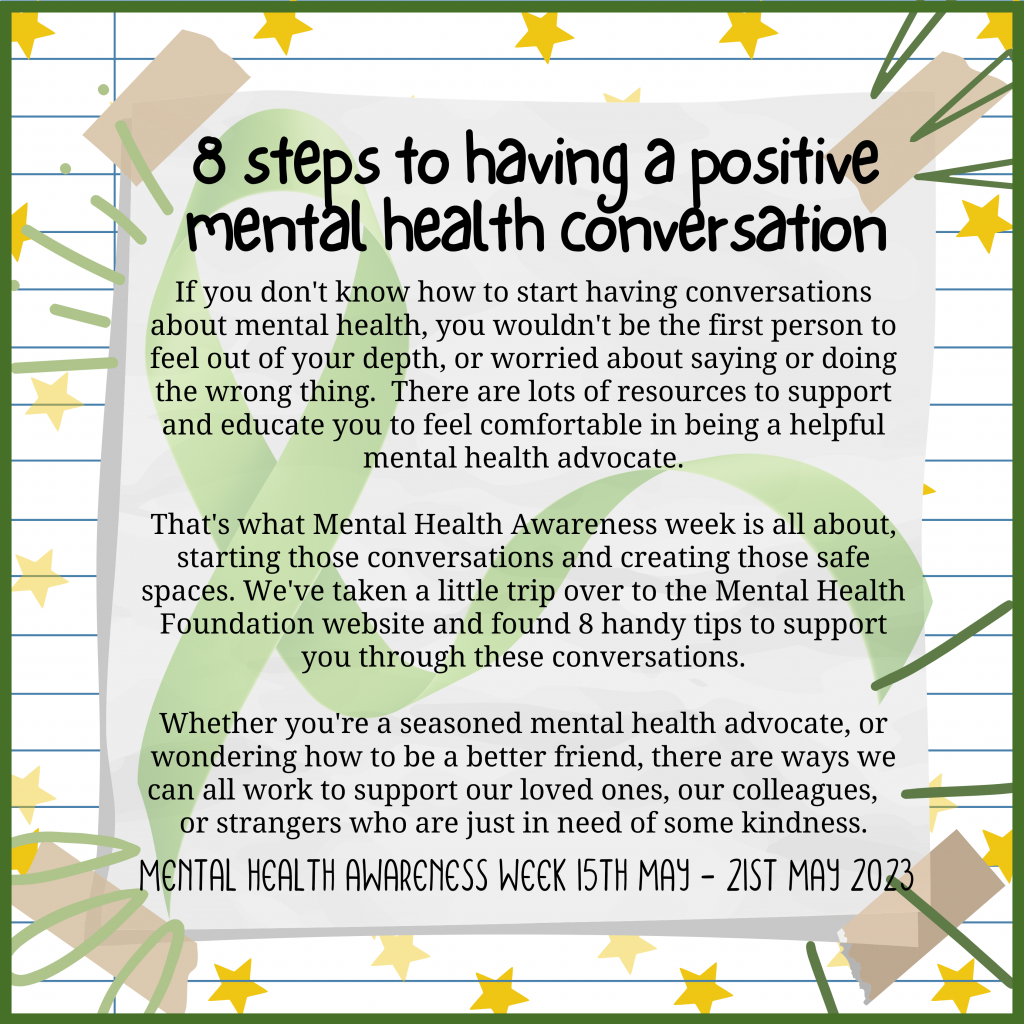
There are many resources available to support your learning and speaking about mental health, and we looked at the Mental Health Foundation to collate 8 key things to remember when approaching these kind of conversations…
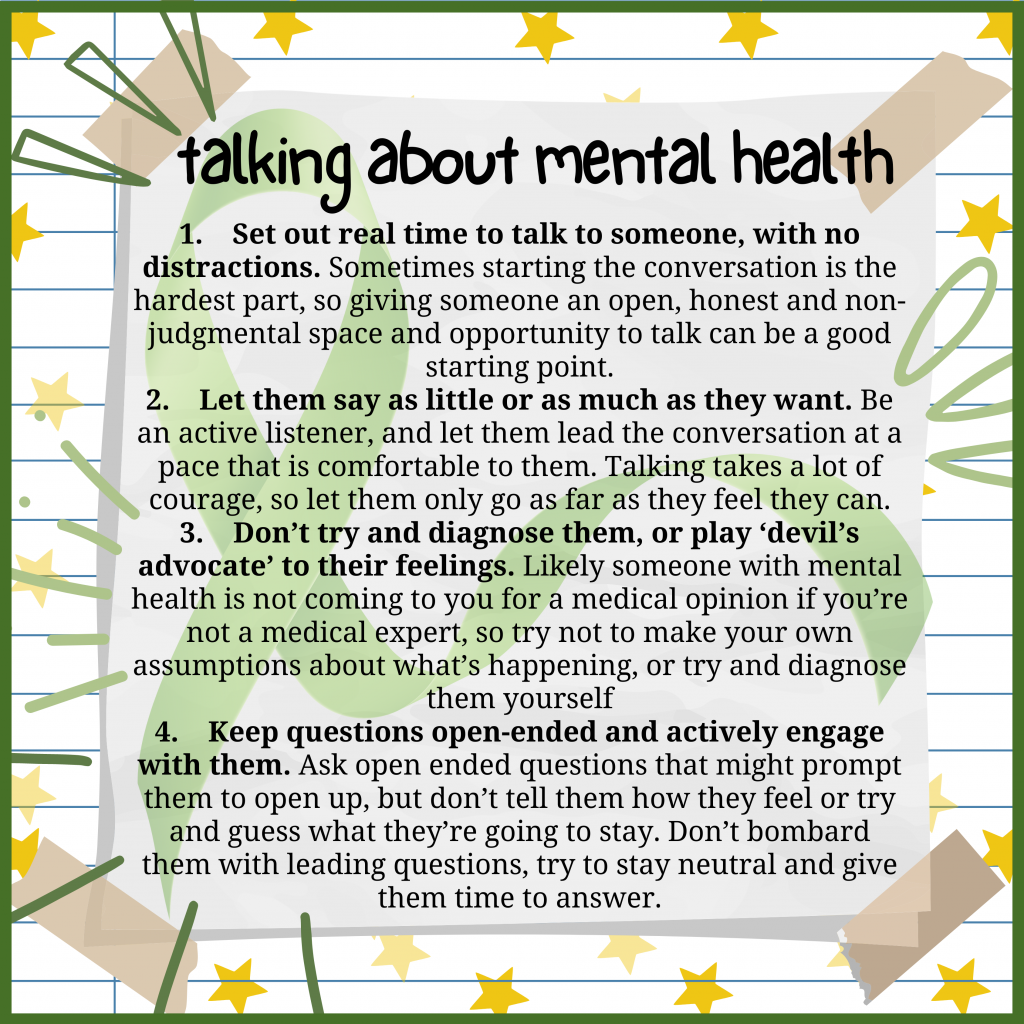
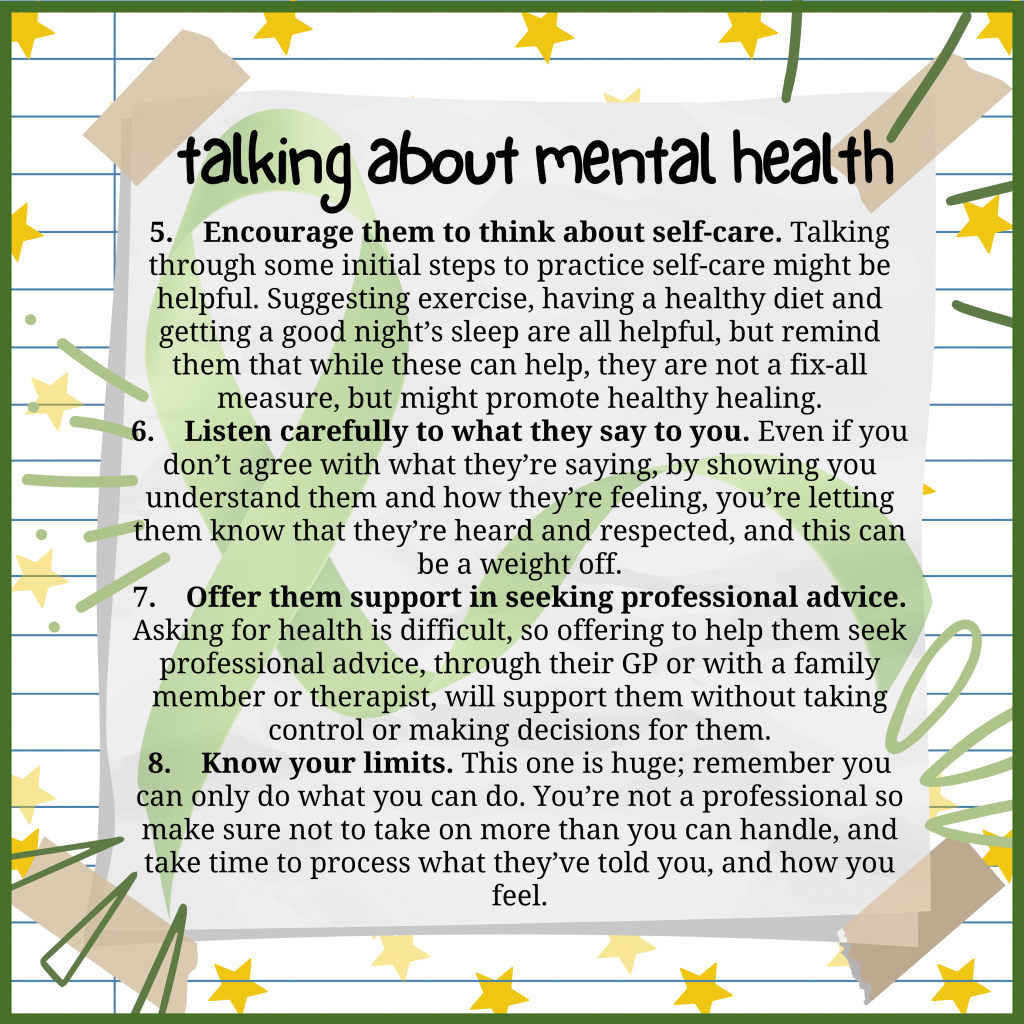
Unlike a broken leg, there’s no set recovery for a mental health condition. Each person is different, every recovery requires personalised support, and there’s no doctor who can slap on a ‘will be healed’ or ‘should back back to normal’ in 6-to-8 weeks label. It’s a difficult period with no finish line in sight, and for most people, mental health can be a lifelong uphill battle and a struggle every day. Somedays feel like mountains, somedays feel like drowning, and somedays you can feel like you’re floating. Your brain can turn on you as fast as the weather, with no 7 o’clock news to forewarn you with a forecast. Having regular, open discussions with the people in your life about their mental health is the equivalent of meeting them halfway up their mountain and offering to carry their backpack for a while. They’re still on the mountain, they’re still taking the steps up or the agonising tumbles back down, but the load is a little lighter for you being there. That’s why talking about mental health is so important.
But to do that, we first have to find a way to break down the barriers that surround these conversations.
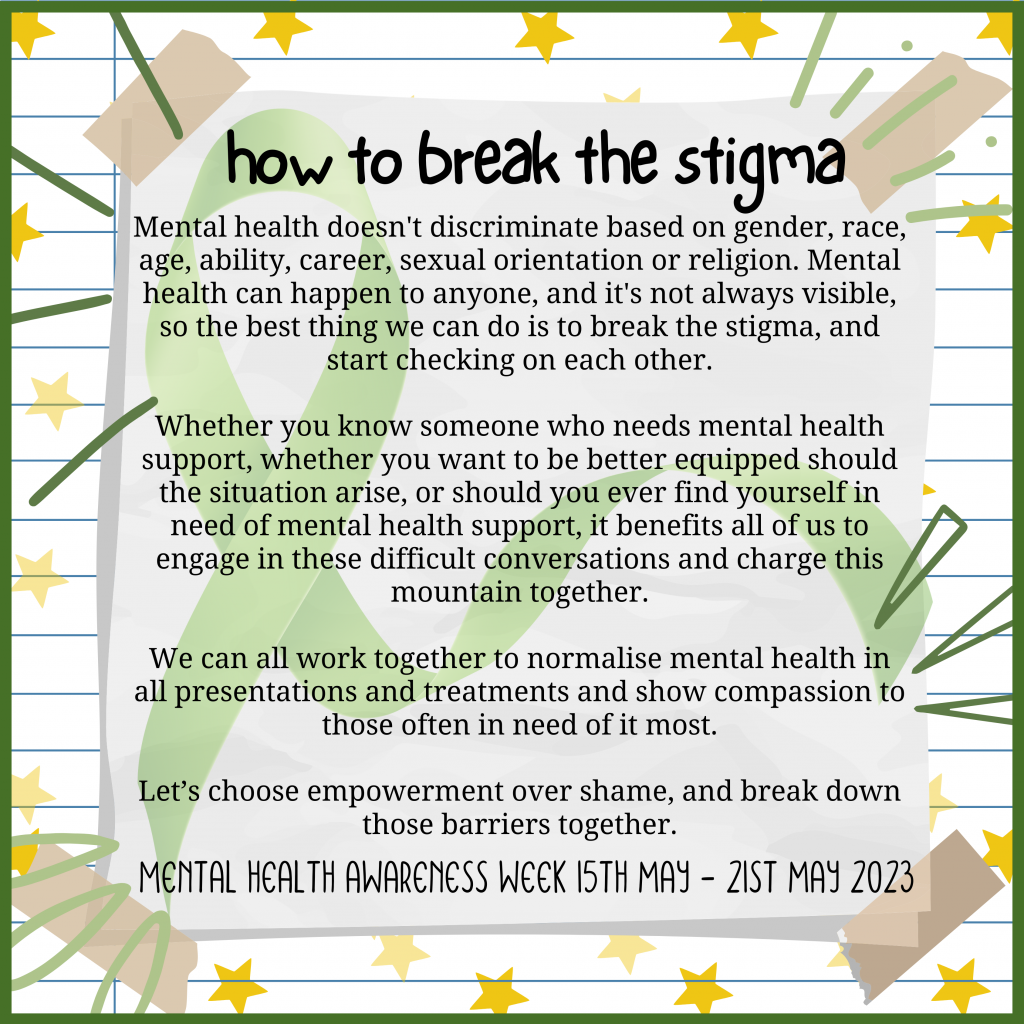
So hopefully now you’re feeling a little bit more prepared to undertake these conversations, the best thing you can do is keep educating yourself, keep empathising and keep taking care of yourself. See this awareness week as a positive week to reach out to your friends, engage in these conversations and maybe lend an ear to someone who’s been waiting for the right opportunity to ask for help.
Happy Mental Health Awareness Week 2023!
